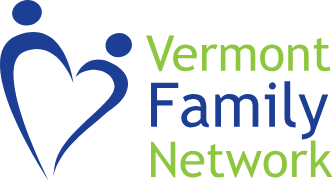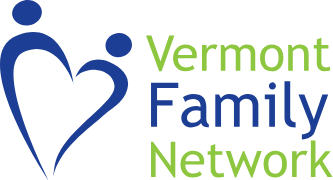Printable Version of Self Advocacy, Awareness and Disclosure
Self-Advocacy
Self-advocacy, the ability to speak up and advocate for your own needs, is a key ingredient to the success of students with disabilities transitioning to adulthood. High school students with disabilities should have opportunities to learn and practice self-advocacy skills as part of their education. Parents and educators usually are the ones who advocate for a student’s program, services, and rights. Given a chance and time to practice, students can learn to become good self-advocates and to help themselves throughout their lives.
All students with disabilities benefit from learning self-advocacy skills (self-advocacy handbook). Parents can model advocacy skills for their student school meetings. By making sure their child attends IEP or 504 meetings as early as possible, parents can gradually take a lesser role, handing over greater responsibility to their student and help them prepare to participate in their IEP or 504 plan (PACER Center tip sheet). As a parent, watching your child lead an IEP meeting helps in the process of “letting go” that is inevitable when your child transitions from high school to the adult world. (I’m Determined IEP sheet for students)
Direct instruction in self-advocacy (22 minute video) can be part of a student’s IEP and transition goals. Practicing these skills can happen throughout a student’s day, in school and during extracurricular activities. Participating in a self-advocacy program run by Voc Rehab, the school or community organization is another way to assist a student in learning how to become a self-advocate.
Here are a few examples of activities that students can participate in to strengthen self-advocacy skills.
- Students can fill out a self-advocacy checklist.
- Have the student take a learning style inventory that will help her better understand how she learns and what accommodations she may need.
- Start early! Support the student to participate in education planning meetings and to practice taking the lead at these meetings. Rehearsing with a case manager or parent before the meeting can help the student feel more confident.
- Make time for the student to review documentation about the disability with a case manager, parent, or other individual who can explain information and answer questions.
- Students can practice asking for accommodations.
- As part of his or her education plan, have the student do research on the internet about the disability.
- Arrange for the student to explain the disability, how it affects learning and what they need in the classroom for accommodations.
- Have the student practice asking teachers for accommodations both in the classroom and during education planning meetings.
Self Determination
Self Determination is the belief that one has the right and is in charge of their life, is active in making decisions, setting goals and the being involved in the direction of one’s life. Self-determination supports successful transition plans (research brief). Having transition age youth lead their own IEP meetings is a way to practice self-determination skills.
Some tips on promoting self-determination:
- Promote self-advocacy
- Identify learning style and strengths
- Involve youth in their IEP
- Help them understand their disability and abilities
- Practice ways to disclose their disability and request accommodations
- Allow youth to take reasonable risks in decision making
Postsecondary
Each youth is responsible for requesting support to address his or her learning style and for explaining the needs that arise from the disability. Some may choose to disclose disability information during the admissions process, which allows the school to take into consideration the youth’s unique challenges and strengths. This is not required for admission and is a personal choice. Sometimes students are reluctant to disclose disability information at college. They fear disclosure may have a negative effect on an instructor’s perceptions of them and that they may face discrimination. A result of that fear is that some students wait to disclose a disability and choose to do so when it may be too late to get timely accommodations. Remember, disability issues that affect learning in high school will also have an impact on learning in college.
Disclosure
Rights and responsibilities will change when youth move from high school to postsecondary education and/or employment. Youth will be responsible for disclosing information about his or her disability to support staff at the postsecondary institution or with their employer. Disclosing information about a disability is voluntary and a personal decision, but one that is also necessary to receive accommodations and modifications in an educational and employment setting.
Here is some advice for students regarding disclosing information about the disability in the postsecondary setting.
- Disclose early in the process of applying to schools and meet early on with new professors. Be proactive and start by helping teachers understand your disability and learning is impacted.
- Make an appointment with disability support staff (also referred to as “student liaison,” “ADA coordinator,” or “student support specialists”) as soon as possible to discuss your disability. Remember to bring appropriate documentation.
- Visit the school’s website for guidelines regarding documentation for students with disabilities.
- Know and request the accommodations you need as well as any other support that will help you succeed in school.
- Become familiar with The 411 on Disability Disclosure.
Employment
Disclosing to your employer is a personal decision. It is not a requirement unless you want your employer to provide you with reasonable accommodations on the job, then sharing information about your disability is…required. The Americans with Disabilities Act (ADA) and the Rehabilitation Act protect people from disability-related discrimination and provide for meaningful access. The laws require that qualified applicants and employees with disabilities are with reasonable accommodations. An employer is only required to provide work-related accommodations.
- Become familiar with requesting and negotiating reasonable accommodations under the ADA.
- Develop and practice a script on how to disclose.
- Think about the types of accommodations that may be needed in the workplace.
- Learn about your rights.
- Become familiar with The 411 on Disability Disclosure.
Research shows that self-advocacy skills are one of the most important factors in the future success of students with disabilities. It is especially important for students to understand their disability and what they need to be a successful learner. Students should have knowledge about their strengths and learning styles, have the ability to explain their disability comfortably, and have information about needed accommodations. If a student is on an IEP or 504 plan, his or her plan should include learning and practicing self-advocacy skills. Students in postsecondary education must assume responsibility for their learning experience and be able to communicate clearly and assertively with others.
Disclosure
Rights and responsibilities will change when students move from high school to postsecondary education. The student will be responsible for disclosing information about his or her disability to support staff at the postsecondary institution. Disclosing information about a disability is voluntary and a personal decision, but one that is also necessary for a student to be considered for accommodations and modifications in his or her education program.
Each student is responsible for requesting support to address his or her learning style and for explaining the needs that arise from the disability. Some students may choose to disclose disability information during the admissions process, which allows the school to take into consideration the student’s unique challenges and strengths. Disclosure can also take place after gaining admission to college or other institution.
Sometimes students are reluctant to disclose disability information at college. They fear disclosure may have a negative effect on an instructor’s perceptions of them and that they may face discrimination. Because of that fear, some students wait to disclose a disability and choose to do so when it may be too late to get timely accommodations. Remember, disability issues that affect learning in high school will also have an impact on learning postsecondary and employment.
Person Centered Planning helps young people with disabilities help plan their future and should reflect a youth’s interests and preferences, current accomplishments and skills, what they still need to learn, as well as what they want to do in life.
Person Centered Planning Tools:
- Group Action Planning (GAP)
- Making Action Plans (MAPs)
- Build Your Own Plan is an online person-centered planning tool created to help people with disabilities think about their strengths, needs, wants and dreams, and put them in a plan to use to make decisions about their life.
- Planning Alternative Tomorrows with Hope (PATH)
- COACH Choosing Outcomes and Accommodations for Children
Self-Advocacy Organizations in Vermont
Websites

